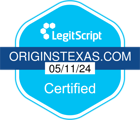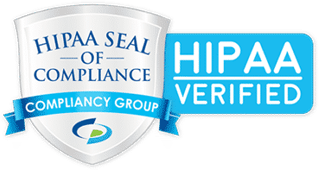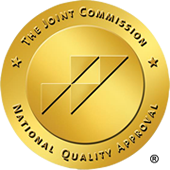Addiction and Personality Disorders Treatment Center in Texas
At Origins Texas Recovery in South Padre Island, Texas, we specialize in helping men and women heal through compassionate, trauma-informed care that addresses the full scope of co-occurring conditions with expertise and heart.

What Is a Personality Disorder?
People with personality disorders may have intense emotional reactions, difficulty maintaining stable relationships, or rigid thought patterns that make change feel overwhelming or even impossible. When substance use is added to the picture, these symptoms can intensify, often creating a dangerous, self-perpetuating cycle that requires comprehensive and compassionate intervention.
Types of Personality Disorders

- Cluster A (Odd or Eccentric): Paranoid, Schizoid, and Schizotypal Personality Disorders
- Cluster B (Dramatic, Emotional, or Erratic): Borderline, Narcissistic, Histrionic, and Antisocial Personality Disorders
- Cluster C (Anxious or Fearful): Avoidant, Dependent, and Obsessive-Compulsive Personality Disorders (not to be confused with OCD)
Each type presents its challenges, but all can significantly increase the risk of developing a substance use disorder as a means of self-soothing or escape.
Contact Our Admissions Team Today
Specialized Dual Diagnosis Care in Texas
Our gender-specific program tailored for men integrates clinical therapy, medical support, and spiritual guidance in a residential setting.
Our treatment for women is in a safe environment that fosters emotional healing and personal growth.
Our Outpatient Program allows clients to receive consistent, personalized care while transitioning back into daily life. It offers flexibility without sacrificing meaningful support or accountability.
This comprehensive model allows Origins Texas to treat the whole person. Emotionally, physically, and spiritually, not just their symptoms. Whether you’re navigating a personality disorder and alcohol addiction, or coping with anxiety, trauma, and stimulant use, our multidisciplinary approach ensures that no part of your struggle is overlooked or left untreated.

Why Choose Dual Diagnosis Treatment Centers in Texas?
- Licensed clinicians and medical professionals trained in mental health and addiction treatment
- Integrated care plans that treat mental health and substance use simultaneously
- Peaceful, private settings that promote healing
- Gender-specific care for increased safety and connection
- Spiritual and holistic practices woven into evidence-based therapies
Many traditional rehab centers are not equipped to address co-occurring disorders. Origins Texas Recovery provides specialized care that recognizes the complexity of treating mental illness and addiction together, not in isolation.
Testimonials
![]()
![]()
![]()
![]()
![]()
Victoria H
I couldn’t recommend Origins more, I first attended their IOP program, then their residential program in South Padre. I’m writing this today a year and a half sober and going strong. Origins has literally saved my life in more ways than one.
![]()
![]()
![]()
![]()
![]()
Emily W
The clinicians are knowledgeable and skilled in a way that is always helpful and never harmful. This program brought me lasting healing and freedom.
![]()
![]()
![]()
![]()
![]()
Mary L
I cannot say enough about Hannah’s House. I entered broken, tired and far more sick than I realized. I was treated with kindness, love, patience and respect by all. I was so frightened to go but sad to leave, that speaks volumes. Thank you from the bottom of my heart to all who put me back together, I am eternally grateful.
![]()
![]()
![]()
![]()
![]()
Jack W
I struggled with my sobriety for over 5 years, but they were able to help me through the 12 steps of AA. I have been sober ever since my experience here. I’ll be hitting 2 years of sobriety in 22 days, thanks to this treatment center. No matter where you go, it’s all about your level of commitment towards gaining a better life ?
![]()
![]()
![]()
![]()
![]()
Jazmine R
Origins was exactly what I needed. The staff were incredibly knowledgeable, compassionate, and helpful. They come with years of experience and consider each individual they’re helping. If you’re looking for a facility that will truly care as much as you/your parents do, or are desperate for a miracle — I can’t recommend Origins more! ❤️
Comorbidity of Personality Disorders and Addiction

Personality Disorders and Substance Abuse: What’s the Connection?
- Emotional dysregulation: Substances may be used to manage overwhelming feelings.
- Impulsivity: Common in Cluster B disorders, impulsive behavior increases the risk of substance misuse.
- Low self-esteem: Addiction may develop as a way to cope with internalized shame or inadequacy.
- Interpersonal challenges: Difficulty forming or maintaining relationships can lead to isolation and substance use.
- Unstable identity: Many with personality disorders struggle with self-concept, using substances to “feel normal.”
Without proper intervention, substance use may worsen personality disorder symptoms and delay meaningful healing.
Types of Co-Occurring Personality Disorders
It is frequently observed that personality disorders coexist with other mental health conditions, such as mood disorders, anxiety disorders, and substance use disorders. Furthermore, certain personality disorders are known to frequently co-occur with one another. Common types include:
Alcohol and Personality Disorders
Alcohol is a common coping mechanism for individuals with borderline personality disorder and antisocial personality disorder, due to its numbing effect on intense emotions or social anxiety. Unfortunately, chronic use can heighten aggression, deepen emotional instability, and increase self-harming behaviors. Treatment for alcohol abuse may also help alleviate these symptoms.
Opioids and Personality Disorders
Those with avoidant or schizoid personality traits may gravitate toward opioids to escape feelings of disconnection, emotional flatness, or chronic numbness. Over time, this pattern can lead to physical dependence, emotional detachment, and deeper social withdrawal that significantly worsens isolation and self-esteem.
Each substance affects people differently depending on their unique mental health profile, trauma history, and coping mechanisms. This is why personalized, integrated dual diagnosis treatment is so essential for meaningful, lasting recovery. At Origins Texas, we provide opioid addiction treatment and dual diagnosis.

Other Mental Health Disorders That Co-Occur With Substance Abuse
Numerous studies have explored the concept of comorbidity within the realm of mental health, including the simultaneous presence of multiple personality disorders or their coexistence with other health conditions. Origins Texas Recovery in South Padre Island, TX, also treats co-occurring conditions such as:
- Major depressive disorder
- Generalized anxiety disorder
- Bipolar disorder
- Obsessive-compulsive disorder
- PTSD
- ADHD
- Dysthymia
- Panic disorder
- Process addictions (e.g., gambling, internet, food)
We recognize that healing from addiction involves more than just removing substances — it requires addressing the emotional, psychological, and spiritual wounds that often underlie them.
Diagnosing Personality Disorders and Addiction
- Psychiatric evaluations
- Medical screening
- Clinical interviews
- Behavioral observation
- Family and peer input (when appropriate)
Once a diagnosis is confirmed, we build a custom treatment plan that addresses each aspect of a person’s life, emotional, physical, relational, and spiritual.
Dual Diagnosis Treatment at Origins Texas Recovery
When appropriate, psychiatric medication is used to stabilize mood, reduce symptoms, and support mental clarity throughout recovery.
Licensed therapists help clients explore the root causes of both addiction and mental health symptoms using approaches such as:
- Cognitive-behavioral therapy (CBT)
- Dialectical behavior therapy (DBT)
- Trauma-informed care
- Motivational interviewing
Peer-based support, which is received in group therapy, helps individuals develop communication skills, self-awareness, and empathy—all vital for those navigating personality disorders.
Family education and counseling help heal fractured relationships and establish boundaries that support long-term sobriety and mental wellness.
We also offer holistic practices like yoga, meditation, fitness, art therapy, and adventure-based recovery to foster healing in all dimensions of the self.
Nationally Recognized & Accredited




Receive Treatment for Personality Disorders and Addiction at Origins Texas Recovery
Our team is here to help you take that first brave step. From detox and therapy to long-term recovery support, we walk alongside you every step of the way.
Contact us today to learn how our programs work and what a customized path to healing could look like for you or your loved one.













